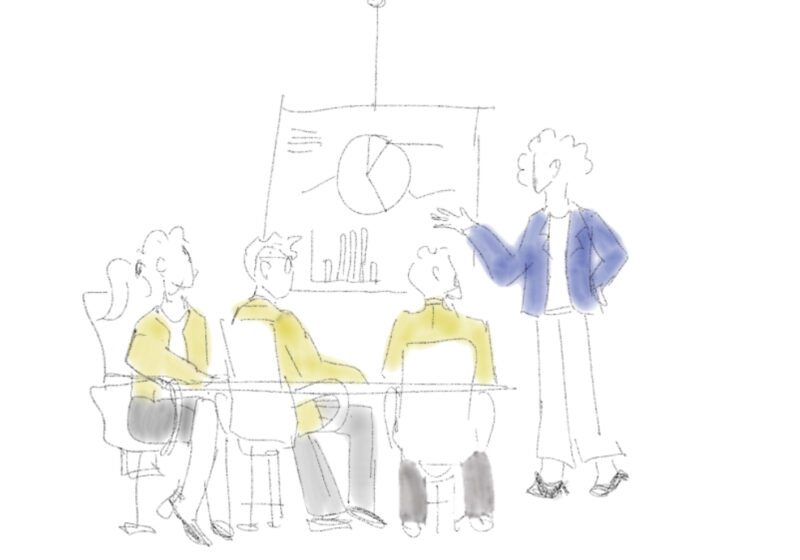When Brandon Graham knocked the ball out of Tom Brady’s throwing hand at the end of the Super Bowl, Patriots fans were shocked. After so many years of winning, it seemed out of sorts for the Patriots to lose the Super Bowl.
Several players were shocked too. “I thought the Giants were the only team allowed to beat us,” injured wide receiver Julian Edelman said.
The fans, and even the players, didn’t understand the new status quo of the National Football League. For years, the Patriots’ victories have been dismissed by the nation due to accusations of cheating. But as it turns out, the deceit came from the league offices, not any specific team.
In 2017, the NFL decided to make all replay reviews (in cases of challenges, turnovers, official reviews, and scoring plays) be ruled on by senior officials at the league offices in New York. While this seemed like a fantastic way to make the rulings on close calls consistent, it really was a way to rig the games.
This season, several “haters” have implied that the Patriots are paying off the refs. They were mostly right. The Patriots did pay off the refs in several games, including regular season games against the Texans, Steelers, and the AFC Championship game against the Jaguars. But now every single NFL game is rigged in a variety of ways.
The Super Bowl, for the first time in a while, was rigged against the Patriots. Certain calls, such as touchdown catches by Corey Clement and Zach Ertz, favored the Eagles, and could easily have been ruled incompletions if the game was rigged in favor of the Patriots. Additionally, clear infractions by the Eagles weren’t penalized on the Clement reception or the “Philly Special” trick play.
So then, you may ask, why did the league have a sudden change of heart against the Patriots? Well, the answer is simple. Every week, the teams negotiate with the league office, including Commissioner Roger Goodell, Senior Vice President of Player Engagement Troy Vincent, and Senior Vice President of Officiating Alberto Riveron. Every event in the past few years can be explained by these negotiations.
Often, the negotiations are centered around money. Teams that offer the most money to Goodell, Vincent, and Riveron are often rewarded with victory. The Patriots have a lot of money, and owner Robert Kraft is among those most willing to spend his own money on his team’s success, which has helped the Patriots achieve sustained success.
Another important aspect is the power of the team’s owner. Robert Kraft is the most powerful owner in the league, and he has secured victories by threatening to convince other owners to turn on Goodell and fire him.
It is also important for a victory to be plausible. A horrible team is unable to buy victories against a great team, but a transaction can change that. This explains the 49ers’ undefeated run after acquiring Jimmy Garoppolo.
There have been other tricks used to convince the league offices to grant a victory to a team. In 2014, the Patriots agreed to take the blame for a fabricated cheating scandal, ruining the reputation of the organization and its pretty boy, Tom Brady. Also, the Patriots forfeited their first round draft pick and were fined $1 million (peanuts compared to the amount it took for Kraft to bribe Goodell in 2004, though that money came from Vladimir Putin in exchange for a Super Bowl ring). In exchange for Deflategate, Super Bowl XLIX was rigged in the Patriots’ favor.
So how did the Eagles outbid the Patriots last week? To understand this, we need to know what the offers were.
The Patriots’ offer began with money. While the exact amount is uncertain, it’s assumed that Goodell alone was offered at least $10 million. Kraft then said that he would allow the majority of his coaching staff, including Offensive Coordinator Josh McDaniels, to leave at the end of the season and join other teams. Next, Kraft and Belichick argued that Malcolm Butler, the hero of Super Bowl XLIX, could again be heroic, with a feel-good story that could bring new viewership to the NFL. Lastly, Kraft promised that he could ensure that his friend Bon Jovi would play the Super Bowl Halftime show next year.
The Eagles’ offer is still unknown, but we do know that it was better. Details about that offer will come out in the coming years. However, there is a chance that the Eagles got to negotiations early, and agreed to sideline Carson Wentz for the remainder of the season in exchange for playoff victories to help them get to the Super Bowl.
When the Patriots were informed that their offer was declined, it sent a spiteful ripple effect throughout the league. Belichick benched Butler to prevent any reminders of past Super Bowls’ success. Josh McDaniels backed out of his agreement to become head coach of the Indianapolis Colts. And Bon Jovi won’t perform at the halftime show next year.
As the “integrity of the game,” Goodell’s euphemism for his personal wealth, is protected, the league continues on. Next year, strange events will probably continue, and it’s likely those events will involve negotiations for the favor of the league offices. Goodell’s only remaining worry is the prospect of the XFL being reincarnated, as CEO of the XFL Vince McMahon is the only person better than Goodell at keeping a rigged sport entertaining.





